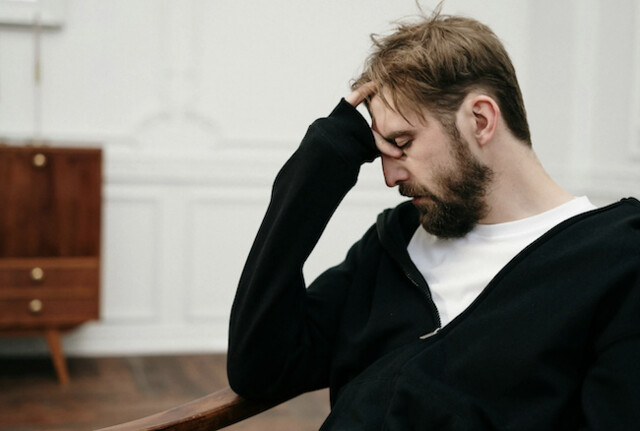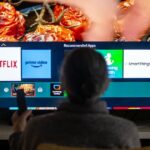As the rain taps against the large windows of Vernon’s Family Resource Centre, six men sit in mismatched chairs, forming a circle that feels both casual and carefully arranged. Some clutch coffee cups, others simply fold and unfold their hands. The silence isn’t uncomfortable—it’s deliberate, a pause before trust begins.
“The hardest part was walking through that door the first time,” admits Paul, a 46-year-old contractor whose weathered hands betray decades of physical labor. “Men in my family didn’t talk about feelings. We fixed things, built things. But you can’t fix yourself that way.”
This gathering represents a quiet revolution happening in the North Okanagan, where the Vernon Family Resource Centre has expanded its mental health programs specifically targeting men—a demographic notoriously resistant to seeking help until crisis points.
Scott Manjak, the centre’s executive director, has witnessed the consequences of this resistance firsthand. “The statistics tell a devastating story,” he explains during a tour of their newly renovated space on 30th Avenue. “Men account for approximately 75% of suicides in Canada, yet they’re far less likely than women to access mental health services. The stigma becomes a silent killer.”
According to the Canadian Mental Health Association, men are three to four times more likely to die by suicide than women, despite experiencing depression and anxiety at comparable rates. The difference, researchers suggest, lies not in the prevalence of mental health challenges, but in help-seeking behaviors.
The Vernon program deliberately sidesteps traditional therapy terminology that might alienate first-timers. “We don’t call it a support group right away,” explains facilitator Michael Guzzi, a former military member who now holds a counseling degree. “We call it a men’s gathering or discussion. The first sessions focus on building camaraderie before diving into deeper waters.”
When I visited the centre last month, Guzzi was preparing for that evening’s session by arranging the room—positioning chairs in that imperfect circle, setting up a coffee station, and placing conversation prompts on small cards. The environment felt intentionally un-clinical.
“Men often process emotions differently,” Guzzi notes. “Sometimes talking shoulder-to-shoulder during an activity rather than face-to-face creates safer entry points. We incorporate hands-on projects and outdoor components alongside traditional talk therapy approaches.”
The program’s expansion comes after a successful pilot that ran throughout 2022, funded initially through a provincial grant. Now, with stable operational support from Interior Health and private donors, the centre has transitioned from monthly to weekly sessions and added individual counseling options.
For participants like Jason, a 38-year-old teacher who sought help after his divorce triggered depression, the program offered what he calls “permission to struggle.”
“There’s this toxic idea that showing vulnerability makes you less of a man,” he says, watching the rain outside. “But sitting here with other guys going through similar things—guys who look like they have it together from the outside—it changes your perspective. Strength isn’t about never breaking; it’s about knowing how to rebuild.”
The centre’s approach addresses specific barriers men face when seeking mental health support. “Traditional masculinity norms emphasize self-reliance and emotional stoicism,” explains Dr. Sarah Richardson, a psychologist with UBC Okanagan who consults on the program’s development. “Men often delay seeking help until symptoms become severe or manifest physically.”
Statistics from the Mental Health Commission of Canada confirm this pattern: men typically wait an average of ten years from first experiencing symptoms before seeking professional help. In rural communities like those surrounding Vernon, geographic isolation and fewer service options compound the problem.
What makes the Vernon program distinctive is its community-embedded design. Rather than expecting men to identify themselves as needing “mental health services,” the centre creates multiple entry points. These include a monthly men’s breakfast club, co-ed woodworking sessions, and partnerships with local employers for workplace wellness presentations.
“Sometimes men come in initially to learn about supporting a family member,” explains intake coordinator Brianna Wei. “Then, over time, they recognize their own needs. We create space for that journey without pressure.”
The program also addresses culturally specific needs. The centre has developed targeted outreach for Indigenous men in partnership with the Okanagan Indian Band, and for newcomers to Canada through connections with immigrant services.
“Different cultures have different frameworks for understanding mental health,” notes cultural liaison Thomas Morris. “We’re not imposing one model but creating spaces where various approaches to healing can coexist.”
For Paul, the contractor, the program’s impact extends beyond his own wellbeing. “My teenage son is watching how I handle stress and emotions,” he reflects. “By getting help, I’m breaking a generational pattern. That might be the most important thing I ever build.”
As the Vernon Family Resource Centre’s men’s program continues expanding—they plan to add a specialized group for fathers and another for men navigating career transitions—they’ve created a roadmap that other communities might follow.
Executive Director Manjak emphasizes that addressing men’s mental health benefits everyone. “When men have healthy coping skills and emotional literacy, we see positive ripple effects through families, workplaces, and the broader community.”
The rain has stopped by the time the evening’s session concludes. The men rise, exchange brief handshakes or shoulder pats, some lingering to help stack chairs. There’s a certain lightness in their movements now, as if each has set down some invisible weight, if only temporarily.
“See you next week,” they tell each other—a simple phrase that carries the weight of continued connection, of permission to return, of the radical notion that healing happens in community, even for those taught to struggle alone.






